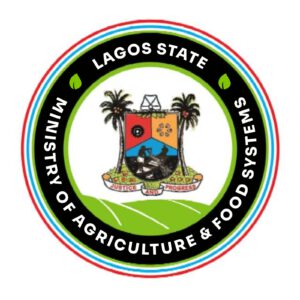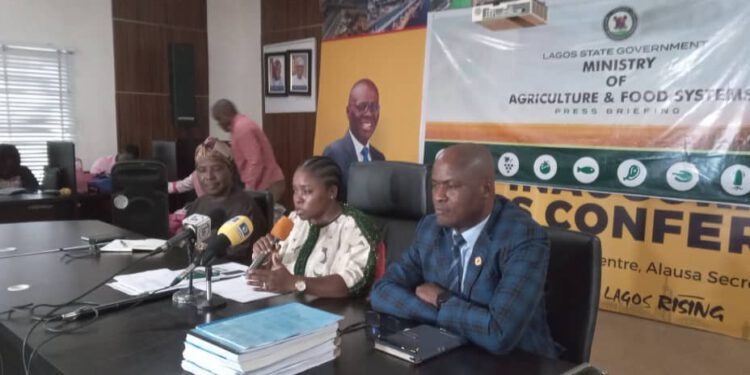The Lagos State Government has renewed its call for residents to embrace subsistence farming by growing various crops within their homes to reduce the high cost of food items in the state.
It also clarified the distribution of food palliatives to residents, emphasizing that due process is always followed without bias towards religion, party affiliation, or ethnicity.

The State Commissioner for Agriculture and Food Systems, Ms. Abisola Olusanya, made these statements while briefing newsmen at the Bagauda Kaltho Press Centre, Alausa, regarding the name change of the Ministry.
She disclosed that the state would ensure transparency and fairness in the distribution of the recently announced 20 trucks of rice by the Federal Government to states to curb the food crisis in the country once they arrive.
Olusanya said that one of the reasons behind adding “Food Systems” to the Ministry’s name was to improve service delivery to the people of the state.
The commissioner further explained that “Food Systems” was included because the issue of agriculture cuts across the value chains in the sector and extends beyond farmers.
She listed that new departments such as Livestock Services, Agricultural Engineering, and Agricultural Produce, Safety, and Quality Control have been created in the Ministry due to the name change.
Olusanya emphasized that these changes aim to enhance service delivery and address the various facets of agriculture comprehensively.
The commissioner further explained that “Food Systems” was added because the issue of agriculture cuts across the value chains in the sector and extends beyond farmers.
According to her, the job in agriculture will only be done successfully when food at affordable prices reaches the doorsteps of the people.
The commissioner listed that new departments such as Livestock Services, Agricultural Engineering, Agricultural Livestock Services, and Produce Safety and Control have been created in the Ministry due to the name change.
According to her, the Ministry stands on four pillars, which include domestic self-sufficiency for harmonizing the database to provide support to all forms of farmers in the state with an emphasis on areas of comparative advantage.
The Lagos Aquaculture Project is also on the front burner.
She informed that the second pillar is upcountry partnership that will yield expected results, noting the ministry had signed MOUs with some states and the private sector, and will do more to reduce food prices.
Strategic food storage, processing, and logistic capacity development, the commissioner said, will involve partnerships on how to process food to curb wastage. She added that more storage infrastructure is needed to hold food for longer periods, and a platform has been created for food transport logistics as this affects the transportation to the market and increases prices.
“Preservation is essential at the moment since food prices are almost hitting the sky,” she added.
She noted that modern market infrastructure has helped significantly since its launch in Mushin last December.
Speaking further on this, Olusanya said they had organized 40 market days with 339 vendors, selling multiple food items worth almost a billion naira. She stressed that no vendor was charged in the last six months, while the initiative helped generate a reliable database of sellers and buyers, contributing to the reduction of food prices.
Olusanya noted that, for the avoidance of doubt, the state government has records of 500,000 beneficiaries of food items, including rice, garri, and beans, distributed through the CDAs across the state. These distributions were monitored by civil society groups, religious bodies, and labor unions.





















